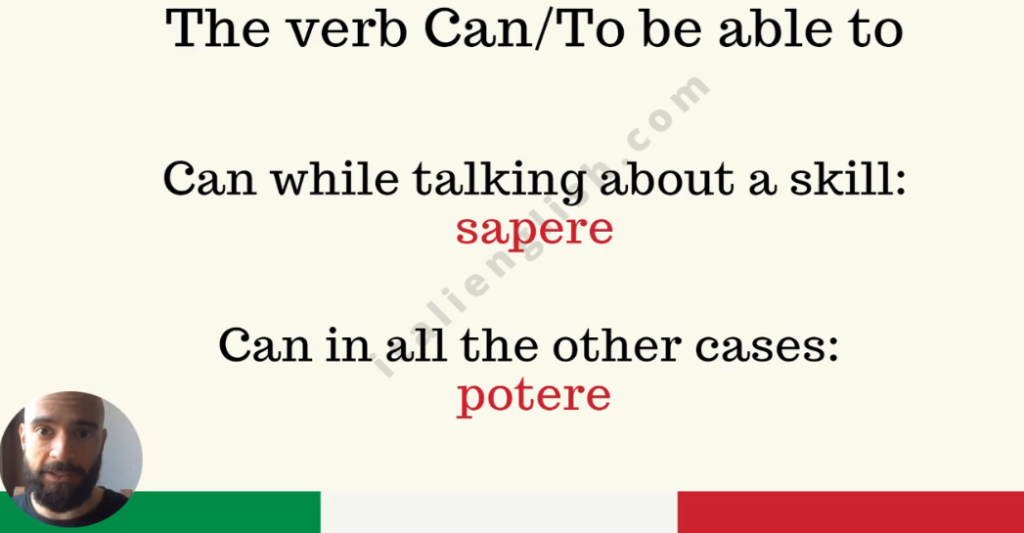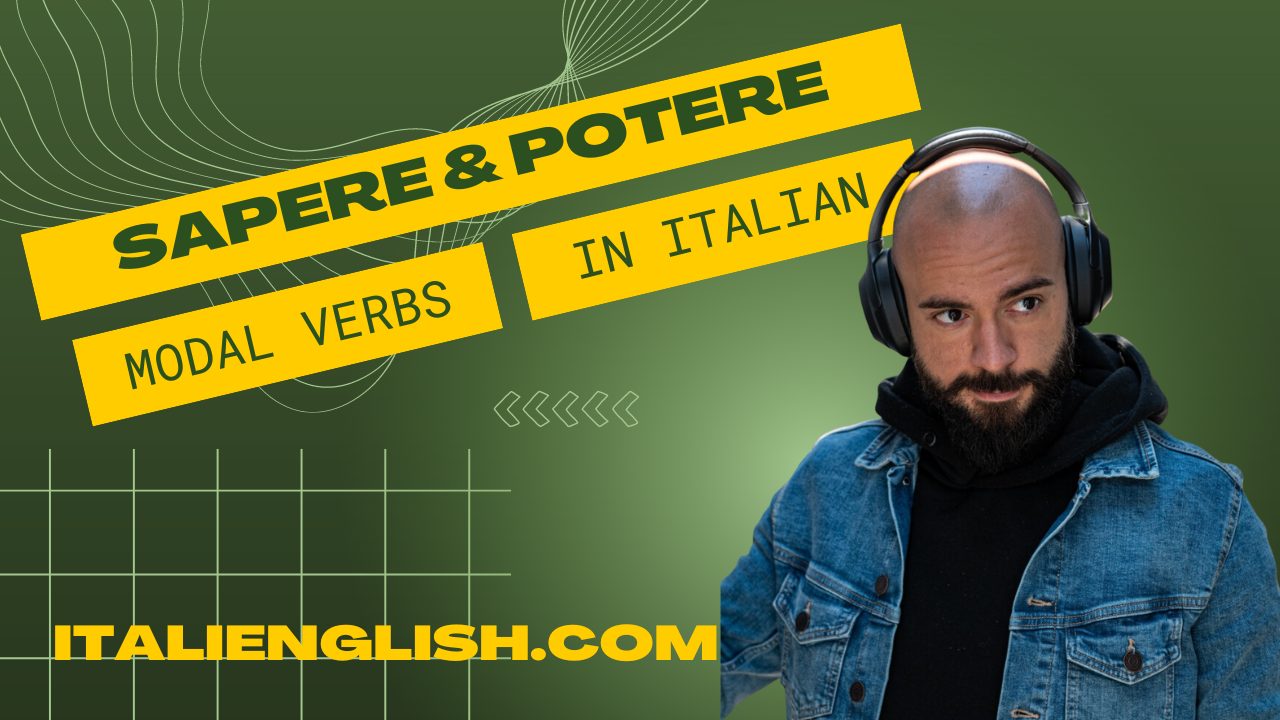Learning a new language is an exciting journey filled with challenges and rewards. When it comes to Italian, mastering the grammar can be particularly daunting, especially when dealing with functional verbs. In this blog post, I will delve into the intricacies of two critical Italian verbs, "sapere" and "potere," which are commonly translated into English as "can" but hold distinct meanings. We'll explore their various uses, conjugations, and practical examples to help you confidently navigate the Italian language.
Content
Content
Modal Verbs in Italian - Can, Must, Want
To begin our exploration, let's clarify the term "functional verbs." While not a universally recognized linguistic category, it is a convenient label used to refer to certain verbs that serve specific functions in a language. In Italian, these verbs are often known as "verbi modali" ("modal verbs").
Among them are "dovere" (must), "volere" (want), and the focus of this blog post, "sapere" (to be able to) and "potere" (can).
Sapere: Mastering Skills (Can/To Be Able to in Italian)
(disclaimer: I'm over simplifying thinks to make it all easier and clear to you, my dear learner)
"Sapere" is the Italian equivalent of "to be able to," used to express the mastery of a skill. For instance, if you want to say, "I can speak Italian, Spanish, English, and Russian," you would use "sapere." Here, you are acknowledging your ability to speak multiple languages, highlighting the skill involved.
Conjugation of "sapere" in the present tense:
- Io so (I can)
- Tu sai (You can, informal)
- Lui/lei sa (He/she can)
- Noi sappiamo (We can)
- Voi sapete (You can, plural or formal)
- Loro sanno (They can)
Do you like what you've read so far? Wanna grab a FREE 4-videos series? Subscribe to my newsletter!

I'll notify you of new articles and send exclusive content. Don't worry! No spam, no unwanted emails, and no sharing your data with third parties.
Potere: Physical Ability (Can/To Be Able to in Italian)
(disclaimer: again, I'm cutting some parts in orders to make it easier for you)
On the other hand, "potere" is used to express the physical ability to do something. It is not related to skills but rather to situations where you can or cannot perform a certain action due to external factors, such as illness or exhaustion. For example, "I cannot go to the doctor right now; I'm too tired" would be translated using "potere."
Conjugation of "potere" in the present tense:
- Io posso (I can)
- Tu puoi (You can, informal)
- Lui/lei può (He/she can)
- Noi possiamo (We can)
- Voi potete (You can, plural or formal)
- Loro possono (They can)
Differentiating the Modal Verbs "Sapere" and "Potere" in Italian
(disclaimer: not only am I simplifying on purpose, but I'm also avoiding to mention "riuscire a", which is another way to express some sort of ability. I'll come up with some content on this topic soon)
Remembering the difference between "sapere" and "potere" can be challenging, but here's a useful hack: "can with skills equals 'sapere.'" As you can see, "skills" contains the letter 'S,' which corresponds to "sapere.".
Easy to remember now, huh? (I have NEVER seen anybody teaching this hack, so if you hear it from somebody else, it got stolen from me... 😀 ).
On the other hand, "potere" covers all the other scenarios, referring to physical ability or other non-skill-related situations.

Putting Potere/Sapere, into Practice
Now, let's explore some examples to solidify our understanding of these two verbs.
- John can speak four languages. Translation: John sa parlare quattro lingue.Here, we are acknowledging John's skill in speaking multiple languages, so we use "sapere."
- Susan can probably arrive here in 30 minutes. Translation: Susan può probabilmente arrivare qui in 30 minuti.In this case, we are not talking about a skill but about the likelihood of Susan arriving here, so we use "potere."
- Mike can play the guitar. Translation: Mike sa suonare la chitarra.As we are acknowledging Mike's skill in playing the guitar, "sapere" is the correct choice.
- Can you please go to the supermarket? Translation: Puoi per favore andare al supermercato?Here, we are not referring to a skill but asking if the person is physically able to go to the supermarket, so "potere" is appropriate.
Conclusion
Understanding the distinction between "sapere" and "potere" is a crucial step in mastering Italian grammar. Whether you want to express skills or physical ability, choosing the right verb is essential for clear communication. By practicing with different scenarios and conjugations, you will soon gain confidence in using these functional verbs effectively.
Learning a new language takes time and dedication, but with the right guidance and practice, you can unlock the secrets of Italian grammar. Armed with the knowledge of "sapere" and "potere," you'll be one step closer to becoming a fluent Italian speaker.
Do you want to get access to my Italienglish Mentoring Program?
13+ hours of video library, daily assignment, accountability, live calls and private Facebook group.
In 3 months you WILL be able to speak Italian, it's a promise!
